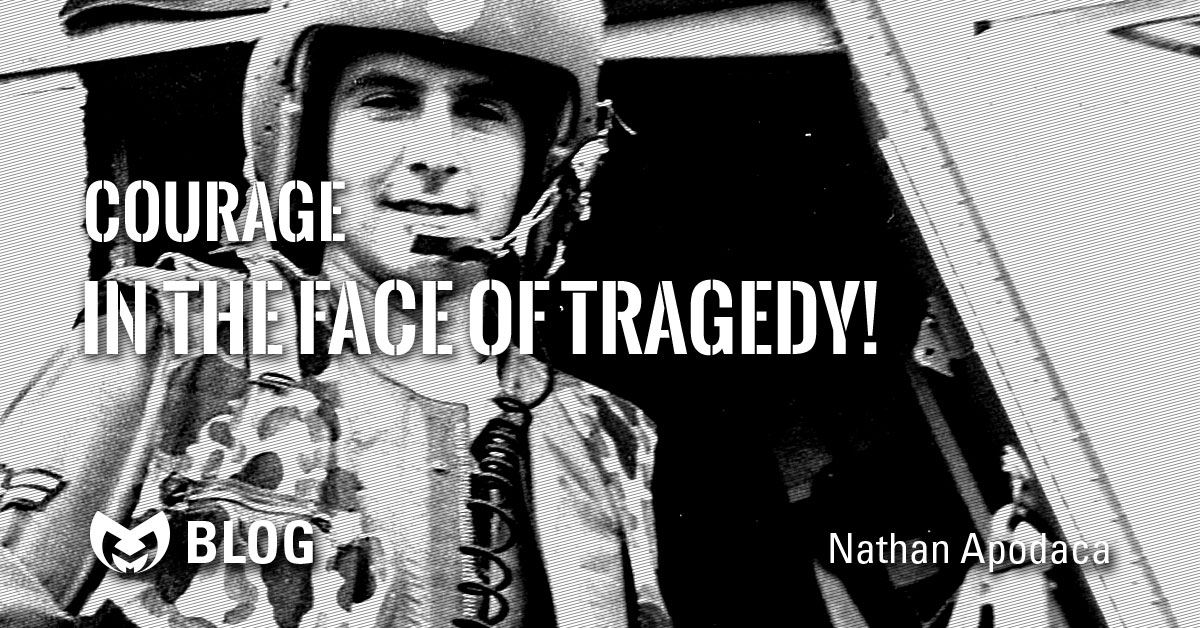War films have a habit of breaking through our moral apathy and cynicism by bringing us face to face with the darkest parts of history that people have lived through, and how good men answer the evil they confront.
The recent Vietnam war film The Last Full Measure is no exception. It tells the true story of Air Force Pararescue Jumper William Pitsenbarger, who later received the Medal of Honor for saving the lives of over 60 men. The film follows the later investigation by Department of Defense staffer Philip Huffman in putting together a posthumous Medal of Honor review for Pitsenbarger.
The Last Full Measure recounts one of the bloodiest days for American forces in Vietnam, the Battle of Xa Cam My.
The battle found C Company of 2-16 Infantry, 1st Infantry Division, surrounded and pinned down in the jungles of Vietnam by sniper fire, mortars, and small arms fire. The operation proved disastrous, as C company took around 80% casualties. Even worse, American artillery units were given the wrong coordinates for their fire missions, resulting in more American troops being killed and injured.
Enter, William Pitsenbarger. As the film recounts, “Pitts” team was called up to assist in evacuating the wounded from the “hot zone.” Because of the dense foliage and enemy fire, helicopters could not land in the area to evacuate wounded soldiers. Instead, Pitsenbarger offered to lower himself into the firefight to help the growing number of gravely injured Americans on the ground. As the helicopters took fire from enemy forces, Pitts refused to leave with his crew, electing to stay and continue providing aid to the men in harm’s way. He is killed, but not before he saved the lives of over 60 men.
As the movie about his life depicts, eventually he is posthumously granted the Medal of Honor, the highest military commendation for any United States service member, 34 years after his heroic actions in Vietnam. Throughout the film, we are constantly reminded that Pitts jumped in to save the lives of men whom he had never met and would never know.
Stories of brave men who embrace self-sacrificial duty like William Pitsenbarger and Desmond Doss often move us, but they also convey truths about morality and can inspire us in our current cultural situation. While most of us will never be thrust into the hellish nightmare that Pitsenbarger and others experienced, the need for heroic courage is nonetheless ever present in contemporary society.
When I have gone out onto college campuses to engage other students on the issue of abortion, some have pointed out that because life itself can be horrid, abortion is often the most merciful thing we can do for a child who may grow up in a horrific circumstance.
When confronted with such a blatantly nihilistic view of human life, it’s worth looking to the stories of men like Pitsenbarger. Stories like the one depicted in The Last Full Measure confront the lie that life itself has no meaning; after all, why would someone charge headlong into enemy gunfire in order to save the lives of people he’s never met and could never know? If life itself has no inherent value, then it simply follows that the heroic deeds of men like Pitts were meaningless.
Deep down, we know that can’t be the case. We know better. As J. Buziszewski puts it, it’s one of the things “We can’t not know”. The slogan of the Air Force Pararescue Corps, “That Others May Live” illustrates that even in the midst of a hellish nightmare, life itself is of value and worth saving.
Courage is needed on the part of everyone who comes face to face with the tragedy of abortion. While pro-life advocacy doesn’t require being shot at by snipers or hit with mortars and artillery thousands of miles from home, facing the culture and the vileness of the abortion choice mentality can be daunting. It may mean having obscenities screamed at us, or being harassed, or being threatened. It may mean losing friendships and relationships with family members.
It may involve giving time and resources to the local crisis pregnancy center. It may involve stepping out on the university campus, all alone and drastically outnumbered, to speak out against the killing of the unborn. And it may involve walking with the young woman who chose life for her baby helping her to face the consequences of doing so, even to the point of sleepless nights, just to show her she is still loved and that her world hasn’t ended. The courage to step up for those whom we will never know is often difficult to muster, but we can do no less.
The Last Full Measure captures the truth that stepping out to do the right thing, to save the lives of those who can’t save themselves, whether in a peaceful office setting or in a literal hell on earth is something truly beautiful and worthy of pursuing.



Leave A Comment